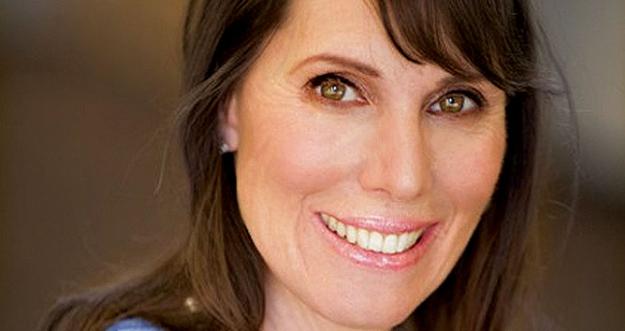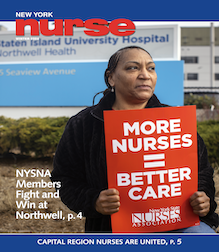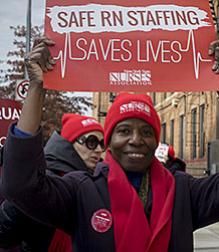
This month NYSNA joined New York State legislators, fellow labor leaders, Governor Cuomo, and Vice President Joe Biden at the New York City rally for paid family leave. Working families need paid time off so that new parents can care for their children and so that loved ones can stay home with sick family members without facing loss of income.
That’s why paid family leave is a key element of the Mario Cuomo Campaign for Economic Justice and why our union actively supports The New York State Paid Family Leave Act (A. 3870 / S. 3004). The legislation, currently before both the New York State Assembly and Senate, will provide up to 12 weeks of paid family leave, and guarantee much-needed financial security to working families. Workers will receive two thirds of their average weekly salary while on leave up to a maximum benefit level, which will be raised each year for the next four years.
U.S. lags world
Nurses know that paid family leave is essential to the health of our patients and our communities. Whether it is to bond with a new child or care for an ill family member, workers need paid time off to support the health of their families. The legislation would also cover workers who need time off to address issues arising from a family member’s military service, and would be available to care for a spouse, domestic partner, parent, parent of a spouse or partner, grandparent, sibling, grandchild, or child.
The United States is the only industrialized country in the world that provides no guaranteed paid family leave. We’re lagging behind the 185 other countries that have already instituted paid leave programs. Our current leave-time system, the Family and Medical Leave Act (FMLA), provides only unpaid time off. But nearly 80 percent of new mothers and 50 percent of all workers are not even covered by the Act.
Most low-wage workers are already struggling to cover basic expenses and cannot afford the loss of income that would result from taking unpaid leave. One recent analysis found that 77 percent of workers who were eligible for FMLA did not take it for financial reasons, although nearly all of them said that they would have taken leave if some wage replacement had been available.
More than half of all low-wage working women have less than $500 in savings. Yet our nation’s current leave-time policies disproportionately shortchange women, who most often act as the primary caregivers in families with a new child or an ill or aging loved one. According to the Family Wealth Advisors Council, working women in their 40s and 50s spend at least 20 hours a week caring for aging family members. The New York Times recently reported that women spend an average of four hours a day on unpaid work, much of it providing care for family members, while men spend about 2.5 hours. This gender imbalance compounds the high levels of poverty that women face in America.
Paid family leave can help to improve gender disparities by protecting women from loss of income and by encouraging men to take leave to care for loved ones. Following the implementation of statewide paid family leave in California, the likelihood of men taking family leave following a child’s birth more than doubled, from 35 percent to 76 percent.
California isn’t alone in seeing advances from implementing paid family leave. New Jersey and Rhode Island have successfully enacted similar programs that have benefitted families in those states.
Business support
Businesses have come out in support of paid family leave. The American Sustainable Business Council’s New York members recently decided to support the bill. That’s because paid leave actually saves businesses money. California’s program is estimated to have saved employers $89 million a year in reduced turnover costs.
Employer’s payroll costs will not be impacted by the Paid Family Leave Act because the benefit will be financed solely through employee payroll deductions. It also will not add any new administrative requirements on businesses because it will become part of the Temporary Disability Insurance (TDI) program that has been in place in New York since 1950.
Businesses that already provide paid family leave will see some of their costs offset, and small business will be more competitive because all workers will receive paid family leave regardless of the size of their company.
Paid family leave is good for families and it’s good for our economy. NYSNA nurses are joining New York State Federation of Labor–AFL-CIO and Governor Cuomo in calling on New York State legislators to stand with working families and to pass The New York State Paid Family Leave Act.




